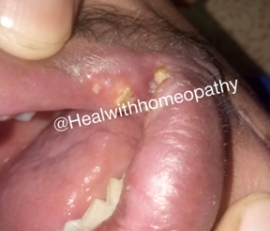 The five countries with highest number of cancer or the oral cavity and lip including India, United States, China, Pakistan and Bangladesh. The standard incidence of these cancers in the world was 4 per 100,000 people.1 The mortality rate is around 50%, largely as a result of late diagnosis.
The five countries with highest number of cancer or the oral cavity and lip including India, United States, China, Pakistan and Bangladesh. The standard incidence of these cancers in the world was 4 per 100,000 people.1 The mortality rate is around 50%, largely as a result of late diagnosis.
Risk factors: 2
- Poor diet
- Alcohol excess
- Smoking
- Tobacco chewing
- Oncogenic strains of human papillomavirus (HPV-16 and HPV-18) have been identified as being responsible for much of the recent increase in incidence, especially in cases affecting the base of tongue, soft palate and tonsils.
- In parts of Asia, the disease is common among people who chew areca nuts wrapped in leaves of the betel plant (‘betel nuts’).2
Symptoms and signs of oral cancer2
- Solitary ulcer without precipitant, e.g. local trauma
- Solitary white patch (‘leukoplakia’) that fails to wipe off
- Solitary red patch
- Fixed lump
- Lip numbness in absence of trauma or infection
- Trismus (pain/difficulty in opening the mouth)
- Cervical lymphadenopathy
Oral cancer may present in many ways and a high index of suspicion is required.
Management plan
All possible sources of local trauma or infection should be treated in patients with suspicious lesions and they should be reviewed after 2 weeks, with biopsy if the lesion persists.
Small cancers can be resected but extensive surgery, with neck dissection to remove involved lymph nodes, may be necessary.
In conventional treatment, some patients are treated with radical radiotherapy alone depending on case presentation and sometimes radio therapy is also given after surgery to treat microscopic residual disease. Some tumor may be amenable to photo dynamic therapy (PDT), avoiding the need for surgery.2
Role of homeopathy
Patients with cancer commonly use complementary and integrative medicine, including homeopathy.3 some clinical studies of homeopathic remedies combined with conventional care have shown that homeopathic remedies improve quality of life, reduce symptom burden, and possibly improve survival in patients with cancer. 3
Homeopathic literature suggests use of homeopathy and its benefits in oral cancer. Medicines are given on symptom totality of the case and have been found to be beneficial to reduce the further spread and progress of disease. Homeopathy being used as an adjunct to surgery and chemotherapy also shows beneficial results evidencing better tolerance to chemo, improving life condition of the patient and reduce cancer load.
Some medicines useful for oral cancer are
Aurum Muriaticum Natronatum, Hydrastis Canadensis, Kalium Bichromicum, Muriaticum Acidum, Nitricum Acidum, Plantago Major.
Appropriate medicine is selected based on symptom totality of the case.
Dietary Suggestions:
- A tobacco free diet is the first step.
- Reduce intake of alcohol, non- vegetarian food
- Stick to vegetarian diet
- Eat as fresh food as possible. More the raw food in your diet betters your immunity and thus better recovery.
Contact us for a more specific Cancer related diet.
Reference
- Salehiniya, H. and Raei, M. (2020) “Oral cavity and lip cancer in the world: An epidemiological review”, Biomedical Research and Therapy, 7(8), pp. 3898-3905. doi: 10.15419/bmrat.v7i8.619.
- Ralston S.H., Penman I.D., Strachan M.W.J., Hobson R.P. Davidson’s, Principles and Practice of Medicine. 23rded. Edinburgh; Churchill Livingstone/Elsevier; 2018. 1417p.
Frenkel M. Is There a Role for Homeopathy in Cancer Care? Questions and Challenges. Curr Oncol Rep. 2015 Sep;17(9):43. doi: 10.1007/s11912-015-0467-8. PMID: 26210222.
